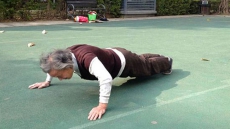If you want to live longer, reduce levels of inflammation throughout your body and delay the onset of age-related diseases -- eat less food, say researchers.
According to a study, published in the journal Cell, researchers from the US and China provided the most detailed report of the cellular effects of a calorie-restricted diet in rats.
While the benefits of caloric restriction have long been known, the new results show how this restriction can protect against aging in cellular pathways.
"We already knew that calorie restriction increases life span, but now we've shown all the changes that occur at a single-cell level to cause that," said study senior author Juan Carlos Izpisua Belmonte from the Salk Institute in the US
"This gives us targets that we may eventually be able to act on with drugs to treat aging in humans," Belmonte added.
For the findings, the research team compared rats who ate 30 per cent fewer calories with rats on normal diets.
The diet of animals in the age group of 18-27 months was controlled. (In humans, this would be roughly equivalent to someone following a calorie-restricted diet from the age of 50 to 70.)
The research team isolated and analysed a total of 168,703 cells from 40 cell types in the 56 rats from starting as well as during the conclusion of the diet. The cells came from fat tissues, liver, kidney, aorta, skin, bone marrow, brain and muscle.
In each isolated cell, the researchers used single-cell genetic-sequencing technology to measure the activity levels of genes.
They also looked at the overall composition of cell types within any given tissue. Then, they compared old and young mice on each diet.
Many of the changes that occurred as rats on the normal diet grew older didn't occur in rats on a restricted diet; even in old age, many of the tissues and cells of animals on the diet closely resembled those of young rats.
Overall, 57 per cent of the age-related changes in cell composition seen in the tissues of rats on a normal diet were not present in the rats on the calorie restricted diet, the study said.
"This approach not only told us the effect of calorie restriction on these cell types, but also provided the most complete and detailed study of what happens at a single-cell level during aging," said study researcher Guang-Hui Liu from Chinese Academy of Sciences in China.
According to the study, some of the cells and genes most affected by the diet related to immunity, inflammation and lipid metabolism.
The number of immune cells in nearly every tissue studied dramatically increased as control rats aged but was not affected by age in rats with restricted calories.
In brown adipose tissue--one type of fat tissue--a calorie-restricted diet reverted the expression levels of many anti-inflammatory genes to those seen in young animals, the research said.




